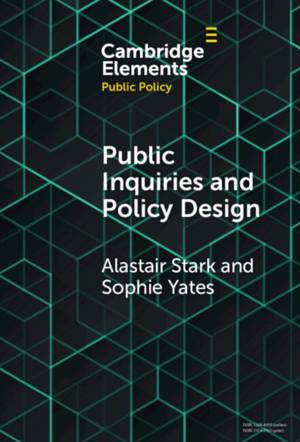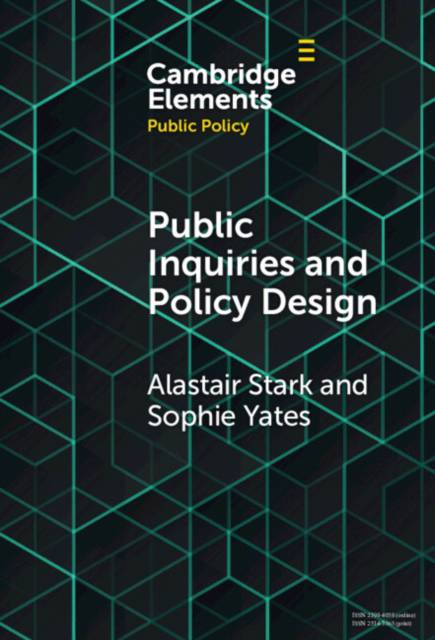
- Afhalen na 1 uur in een winkel met voorraad
- Gratis thuislevering in België vanaf € 30
- Ruim aanbod met 7 miljoen producten
- Afhalen na 1 uur in een winkel met voorraad
- Gratis thuislevering in België vanaf € 30
- Ruim aanbod met 7 miljoen producten
Zoeken
Omschrijving
Public inquiries regularly produce outcomes of importance to policy design. However, the policy design literature has largely ignored the many important ways that public inquiries can act as policy design tools, meaning the functions that inquiries can offer the policy designer are not properly understood. This Element addresses this gap in two ways. First, it presents a theoretical discussion, underpinned by international empirical illustrations, to explain how inquiries perform policy design roles and can be classified as procedural policy tools. It focuses on four inquiry functions - catalytic, learning, processual, and legitimation. Second, it addresses the challenge of designing inquiries that have the policy-facing capacities required to make them effective. It introduces plurality as a key variable influencing effectiveness, demonstrating its relevance to internal inquiry operations, the external inquiry environment, and policy tool selection. Thus, it combines conceptual and practical insights to speak to academic and practice orientated audiences.
Specificaties
Betrokkenen
- Auteur(s):
- Uitgeverij:
Inhoud
- Aantal bladzijden:
- 70
- Taal:
- Engels
- Reeks:
Eigenschappen
- Productcode (EAN):
- 9781009494489
- Verschijningsdatum:
- 23/05/2024
- Uitvoering:
- Hardcover
- Formaat:
- Genaaid
- Afmetingen:
- 152 mm x 229 mm
- Gewicht:
- 267 g

Alleen bij Standaard Boekhandel
+ 209 punten op je klantenkaart van Standaard Boekhandel
Beoordelingen
We publiceren alleen reviews die voldoen aan de voorwaarden voor reviews. Bekijk onze voorwaarden voor reviews.











